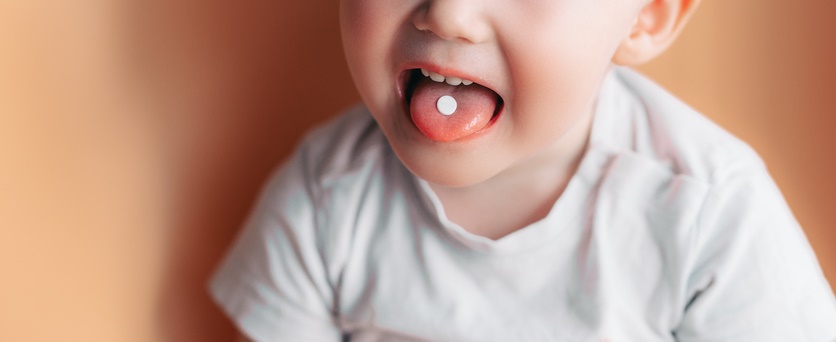5 tips for medicine safety: A key part of child-proofing your home

Do you know where all of your medicine is kept? Research suggests parents know they need to store medicine safely, but many also keep medicine within reach in places like purses and on nightstands and counters. In 2017 alone, nearly 52,000 children under 6 years old were treated in ERs for medicine poisonings.
The organization Safe Kids recommends that medicine safety be part of the initial child-proofing parents do before they bring their baby home and that they continue to assess and make adjustments to where medicine is kept as their child starts to crawl, walk and climb.
Here are some tips to keep in mind:
Add medicine safety to your initial child-proofing checklist.
As you create a safer home environment for your child to grow and explore, it’s important to add medicine safety to your list along with installing safety gates and cabinet locks, anchoring furniture and mounting TVs, and keeping small objects and poisonous products out of children’s reach. As your child learns new skills and becomes more mobile, anticipate that you may need to continue to assess and change where you keep medicine to avoid alarming surprises.
Never refer to your child's medicine as “candy.”
If you're trying to get your child to take medicine, do not liken it to candy because they may try to take it on their own when they do not need it or when you are out of sight.
Think about products that you may not consider medicine, such as vitamins, diaper rash cream and eye drops.
Pills and cough syrups aren't the only items you need to worry about. Store all health products in safe places that are out of your child's reach.
Keep medicine and vitamins out of children’s reach and sight, even medicine you take every day.
Think about places you store medicine you don’t use regularly as well as places you keep medicine that you use more frequently. Children often find medicine kept in purses or on counters and nightstands, so it's important to put medicine in cabinets at or above counter height, even if you need to take another dose in a few hours. Keep all bags or briefcases on high shelves or hang them on hooks where your child can’t reach them.
Save the Poison Help number in your phone and post it visibly at home: 1-800-222-1222.
Specialists at poison control centers provide free, confidential, expert medical advice 24 hours a day. They can answer questions about how to give or take medicine and help with poison emergencies.
Safe Kids Fayette County is a childhood injury prevention program led by Kentucky Children’s Hospital. Call 859-323-1153 for more information.




